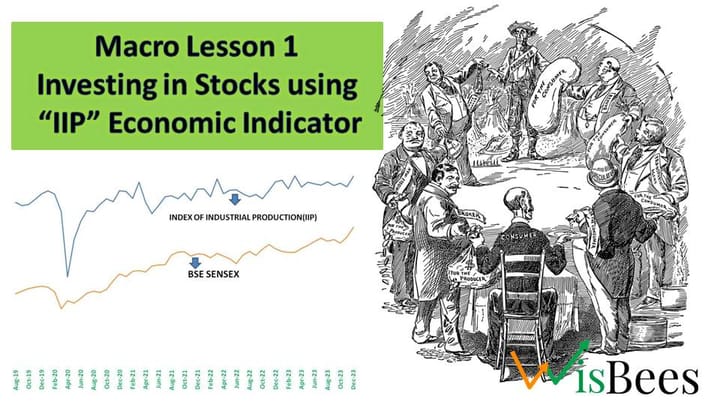Betrayed by Dabba Trading: A Cautionary Tale of Illegal Investment Practices

Story
One day, my friend Sritam while walking home from work, noticed a small shop with a sign that read "Investment Opportunities Available." He had heard about dabba trading before and was curious about it. He entered the shop and was greeted by a friendly man who introduced himself as Swadin, a trader.
Swadin explained to my friend that dabba trading was a way to invest in the stock market outside the formal framework of the stock exchange. Sritam was hesitant at first, but Swadin assured him that dabba trading was safe and profitable.
Swadin then further showed Sritam a ledger of trades conducted by the dabba traders and offered to help him invest in the market. Sritam was impressed by the high returns promised by Swadin and decided to invest his savings in dabba trading.
Over the next few months, Sritam invested more and more in dabba trading. Swadin would call him regularly to update him on the performance of his investments, and my friend Sritam was pleased to see his money grow.
One day, Sritam received a call from Swadin informing him that the market had crashed, and he had lost all his investments. My friend Sritam was devastated. He had trusted Mr. Swadin and had invested all his savings in dabba trading, hoping for a better future for his family.
Sritam soon realized he was not the only one who had lost money in dabba trading. Many people in his community had also invested in dabba trading and had suffered losses.
Sritam decided to take action. He formed a group of investors who had lost money in dabba trading and approached the authorities for help. The authorities soon discovered that Swadin and his network of dabba traders were operating illegally and arrested them.
Explanation
Dabba trading is a term commonly used in India to describe an illegal method of trading securities conducted outside the formal framework of the stock market. In dabba trading, trades are conducted through a network of agents operating from unregulated and unlicensed offices across the country. The term 'dabba' refers to a box used to transport goods, and in the context of dabba trading, it refers to a box that contains a ledger of trades conducted by the agent.
In this article, we will explore the phenomenon of dabba trading in detail. We will look at its history, its impact on the Indian stock market, and the measures taken to combat it. We will also examine the challenges that lie ahead in the fight against dabba trading.
History of Dabba Trading in India
The roots of dabba trading can be traced back to the early 1900s when the Bombay Stock Exchange (BSE) was established. In those days, the BSE was a small exchange that operated from a single room, and most of the trading was conducted through a network of brokers who had their offices in the vicinity of the exchange.
As the Indian economy grew, the stock market expanded, and the number of brokers increased. However, not all brokers were registered with the stock exchange, and some of them began to operate outside the formal framework of the exchange. These brokers set up their own offices and began to conduct trades on their own, without the oversight of the stock exchange.
Over time, this informal system of trading grew in size and scope, and it became known as dabba trading. In the early days, dabba trading was primarily confined to small towns and cities where there was limited access to the formal stock market. However, as technology improved, dabba trading spread to larger cities and even to foreign countries.
Impact of Dabba Trading on the Indian Stock Market
Dabba trading has a significant impact on the Indian stock market. Firstly, it undermines the integrity of the formal stock market by providing a parallel market for securities trading. Dabba traders often offer higher leverage and lower margin requirements than the traditional market, making it attractive to investors looking for quick profits.
This can lead to volatility in the market as investors move their funds in and out of the formal market depending on the opportunities available in the dabba market. Moreover, dabba trading is often used to manipulate the price of securities, distorting the market and leading to losses for investors.
Secondly, dabba trading has an adverse impact on tax revenues. Since dabba trading is conducted outside the formal framework of the stock market, the transactions are not subject to taxes and other regulatory fees levied on formal market transactions. This results in significant revenue losses for the government and undermines the government's ability to fund social welfare programs.
Thirdly, dabba trading poses a risk to the stability of the financial system. Since dabba traders operate outside the formal framework of the stock market, they are not subject to the same regulations and oversight as formal market participants. This can lead to systemic risks, as dabba traders take on more leverage and engage in riskier trades.
Measures Taken to Combat Dabba Trading
Box trading is an illegal act U/s 23(1) of the Securities Regulation (Contract) Act,1956. On getting caught a fine of up to 25 crores is imposed or imprisonment of 10 years.
| Broker | Type | Offerings | Invest |
|---|---|---|---|
 |
Discount Broker | Mutual Funds, Stocks, IPOs, Bonds | Know more |
 |
Discount Broker | Mutual Funds, Stocks, IPOs, Bonds | Know more |
 |
Discount Broker | Mutual Funds, Stocks, IPOs, Bonds | Know more |
 |
Service Broker | Mutual Funds, Stocks, IPOs, Bonds | Know more |



